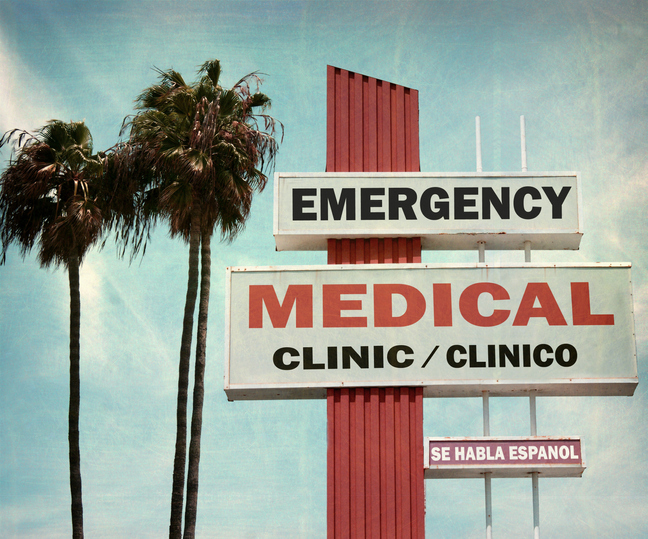Given Mexico’s popularity as a destination for work, school, and play, we get a lot of questions regarding medical care in the country – and how travelers can prepare accordingly. To help answer these questions, our Chief Medical Officer, Dr. William Siegart, shares his experience and insights from a recent site visit to Mexico. Read on to learn more about its medical landscape, some (potentially surprising) risks, as well as actionable advice for travelers who might need medical treatment while visiting the country.

Understand the Risks: While many U.S. citizens have acceptable hospitalization experiences in Mexico, some have reported hospitals withholding care for payment, gouging prices/failing to itemize charges, withholding U.S. passports, obstructing necessary medical evacuations, giving monetary incentives to ambulances for delivering patients to specific facilities, and even holding patients at hospitals against their will pending payment.
Dr. Siegart’s tip: It’s extremely important to note that these risks are prevalent in other regions of the world, not just in Mexico. That’s just one of the reasons we always say here at On Call that an informed traveler is a safer traveler! Prior to departure, having a thorough understanding of destination-specific risks is critical, so travelers can feel empowered to make informed decisions before and during their trips. The State Department and CDC are great resources for pre-trip research, but for those looking to save time, On Call clients can call us for the scoop—our in-house medical and security teams continually monitor the risk landscape of every country in the world. We’re always here to answer questions and provide up-to-date information to our travelers.
Know Your Rights: According the U.S. State Department, in Mexico, the Federal General Health Law governs the rights and responsibilities of hospitals and patients. The key provisions of the law require the nearest medical facility to see patients with emergency medical conditions, that patients receive complete information about their diagnosis and care, and that patients authorize any treatment. Additionally, patients have the right to consent to treatment and where they will receive treatment. Finally, hospitals may not retain or attempt to detain a patient to guarantee payment of medical services. However, the patient, family member, or legal representative who authorized the treatment is also responsible for arranging payment of the bill with the hospital administration and/or insurance company.
Dr. Siegart’s tip: It’s important to have access to legal resources when traveling. If an On Call client finds themselves in an unexpected legal snafu (or even a major crisis!) while traveling, it’s important to make those phone calls count. Fortunately, our travelers can call us for legal assistance, 24 hours a day, 365 days a year.
Pay Attention to the Details: The U.S. State Department recommends that U.S. patients in Mexico take the following steps to ensure proper billing for hospital services, including obtaining the estimated cost of any proposed treatments, requesting an itemized bill every day (for those in need of help translating their bill, On Call can help!), and expressing any concerns about billing with hospital administration immediately. If a patient feels uncomfortable with the costs, they should check with other hospitals and, if medically possible, change hospitals (however, it’s also important not to assume the hospital will work with the patient’s insurance company).
Dr. Siegart’s tip: Not a fan of paperwork (and logistics)? On Call can not only provide guarantees of payment and benefits coordination for our travelers, but we can also provide expert medical monitoring to help ensure travelers are getting the treatment they need, when they need it—and if a traveler needs to change hospitals to receive more appropriate care, we’ll also help coordinate the necessary arrangements.
Look for Appropriate Providers and Hospitals: There are three different types of hospitals in Mexico, all of which vary in quality. First, there are public clinics where patients are expected to pay for medications and other basic items; second, there are public and private hospitals, which generally provide basic-level of care (but might not be able to handle complex cases); and third, there are modern/major private medical centers that provide care more comparable to those in the United States – these are generally located in larger cities such as Guadalajara and Mexico City.
Dr. Siegart’s tip: Travelers should obtain as much information as possible about the quality of available medical care and personnel in their destinations (we have found that the greatest variability occurs in coastal/resort regions). On Call can provide our travelers with options for hospitals, clinics, and physicians in their destinations and can even coordinate medical evacuation to a more appropriate facility if needed. Also, it’s important to keep in mind that a credible facility today won’t necessarily be a credible facility a year from now – this is why we conduct site visits to help keep up with developments and changes in regions around the world.
Have a Plan B: Most Mexican hospitals don’t accept U.S. domestic health insurance or Medicare/Medicaid and require upfront payment by cash, credit card, debit card, or bank transfer. It’s also important to note that some private U.S. insurance companies pay for medical care overseas, but usually on a reimbursable basis – meaning the traveler must pay first and request reimbursement later.
Dr. Siegart’s tip: This is just one of the many reasons why purchasing supplemental medical evacuation services through a firm like On Call is so important—whether the plan provides primary medical care coverage outside the United States, or secondary coverage in which expenses can be paid and submitted for reimbursement upon return, it’s critical to plan ahead to avoid unnecessary (and unexpected) out-of-pocket medical and transportation expenses.
Want more information about travel health and holistic risk management? Contact us today.


